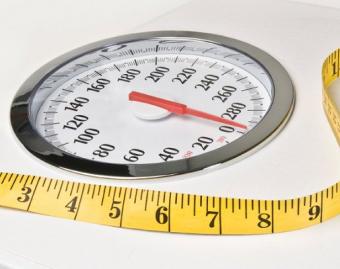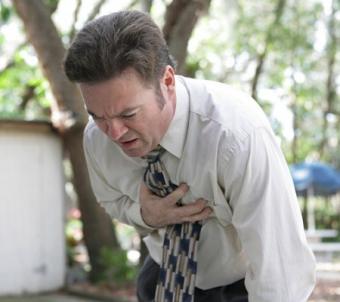Headaches

There are many physical signs of stress you can look for if you're concerned about how your stress levels may be affecting your body and mood. By understanding what the different signs of stress are, you can be better aware of when you're stressing out so you can take appropriate steps to relax.
Headaches are one of the most common signs of stress. From simple twinges to debilitating migraines, recurrent headaches may indicate a high stress level.
Insomnia

While an occasional sleepless night is perfectly normal, persistent insomnia can be a sign of too much stress. Many times, people under high stress levels won't be able to calm their minds sufficiently for restful sleep. Consider meditation techniques or adjusting your sleeping habits to help you get better rest.
Drinking

Excessive drinking can be a sign of stress. If you feel you must have alcohol in order to relax, and over time you need more and more alcohol just to feel at ease, you should examine the stress in your life to discover the source of the tension so you can avoid the dangerous consequences of alcoholism.
Angry Outbursts

Losing your temper over small, insignificant issues can be a sign that you're under excessive stress. While minor frustrations can be aggravating, if you find yourself throwing a tantrum or getting agitated by every little thing, it can be a signal that stress is affecting your mood.
Illness

Persistent illness, especially cold or flu-like symptoms, may indicate a high stress level. Get plenty of rest and follow your doctor's instructions to recover, since illness can make your stress level even higher. Similarly, if you're too stressed, you can be more susceptible to minor ailments, so take precautions to stay healthy.
Appetite Changes

A drastic change in appetite - either overeating or not eating at all - can be a sign of stress. Some people will eat for comfort when they feel stressed, while others will be too tense to eat much. Neither result is healthy, and you should take care to eat a balanced diet that can help your body be healthy and stress free.
Muscle Tension

Unexplained tight muscles, particularly in the neck and back, can be a physical manifestation of too much stress. While sore muscles are normal after a lot of physical activity, if the soreness increases or has no apparent cause, it may indicate that you're under a lot of stress. Try stretching exercises, a warm bath, or a massage to help your body relax.
Weight Changes

Extreme fluctuations in weight can be a sign of stress. Gaining a lot of weight in a short period of time or losing a lot of weight just as quickly is not healthy and can be physical proof that your body is under stress. If the weight loss or gain is unexplained, consult a physician for a diagnosis, but don't dismiss stress as a possible cause.
Digestive Troubles

Digestive difficulties, including excessive gas, diarrhea, and constipation can all be signs of stress. Watch your diet carefully and try bland, simple foods for a few days to see if that helps your body recover from the stress.
Depression

Feelings of listlessness, despair, or despondency can be signs of stress that can create a depressed mood that may last for weeks or months. Take time to enjoy recreational activities and relax more to help your body and mind balance the stress in your life.
Nail Biting

If you've never been a nail-biter, nibbling on your nails unconsciously can be a sign that you're under stress. Keep your nails smooth and trimmed to avoid the temptation while you sort out the stress causing your anxiety.
Sign up for our newsletter featuring all the latest stories and products we love.
Breathing Problems

Shortness of breath is a common physical sign of stress that may lead to an anxiety attack, particularly with high levels of short term stress. If you find yourself hyperventilating, close your eyes and concentrate on your breathing before confronting the problem causing your stress.
Concentration Problems

If overwork is causing your stress, a lack of concentration can be one common sign of difficulty. This is particularly common in situations with repetitive work or where you need to be self-motivating to accomplish your tasks. Set reasonable deadlines and create to do lists to help you manage your work more easily.
Skin Irritation

Skin irritations such as rashes or hives can be a sign of stress. The irritation may be localized or spread on different parts of the body, and it may cause itching or burning. Even if you feel this may be stress-related, always consult a physician for a proper diagnosis and effective treatment.
Chest Pain

If you ignore the physical signs of stress, they can get worse. Chest pain is one of the most severe physical signs, and high stress levels can even lead to a heart attack or stroke. Try different stress relief exercises or natural stress relief methods to control your anxiety before it becomes a severe health risk.







